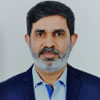
Healthy Economies
16 Sep 2015Economies across the world are eager to join the race to prove that they can do something better than their neighbours or other nations in their region. National incomes have increased in certain parts of the world, while they have almost disappeared in others. But who makes these economies thrive – is it the government? The policies of the government definitely play their part in making it easier to conduct business but they cannot be why certain economies are more successful than others. Economies that respect and take care of their work force are more likely to thrive in the long run than economies which do not. Companies across the world offer a host of benefits to their employees to ensure that they stay committed and give their best performances. But how much really is any economy’s success or failure related to its attitude towards the healthcare industry? A lot, actually.
Experts say that healthcare is inextricably linked to sustainable development; it is both a contributor to, and beneficiary of, the concept. Thus it can be understood that a healthy population is likely to be more productive, both stimulating and maintaining a thriving economy. This increasing recognition of the relationship between the economy and the healthcare system is shaping policy at a number of levels. As such, health-related policies are featuring prominently in international efforts to promote sustainable development. A manner in which companies are getting involved with their employees and communities in their healthcare initiatives is best indicated by Bayer Healthcare. Bayer Healthcare, a pharmaceutical company, has supported a program aimed at teenagers in the Kingdom of Saudi Arabia to raise awareness of diabetes – a disease which is becoming wide-spread in the region. The company also organises roundtable events which gather international audiences to discuss regional and global health-related challenges.
Healthcare has today become a CSR initiative of companies and the adoption of this policy has spread to nation in Asia, Middle East and a few African firms. Companies in the Middle East are encouraging benchmarking and publicising regional CSR contributions to healthcare to encourage companies to take part in the initiative. Telemedicine is another CSR initiative that has been started by companies to ensure that employees have access to the best healthcare irrespective of their location. Companies are leveraging their technology advantage to spread this across the Middle East region.
Healthcare systems may vary from country to country in the Middle East but establishing welfare systems for employees need not be region specific. By taking care of employees, companies ensure higher productivity and loyalty thus raising their chances of outperforming in their sector of operation.
What people say

A business leader with a clear objective to Build a Legacy through his business acumen and passion to excel, being associated with Dr Tejinder opens up new avenues for learning.

Dr Tejinder Singh , the man who taught me to teach and lead. My first and only professional Guru who would run the mile first and push me to walk that . A wonderful human being and an exceptional professional.

Tejinder is one of the most amazing client/business partner that I have ever met.

I met Bhattia sahib once and found him very friendly,intelligent and very focused head of an efficient organisation.

In my association with Tejinder I have found him to be very frank in his views.He is very strong in his domain knowledge and also has sharp commercial acumen.

I was hired by Tejinder Sir, in the year 2003, which was also the turning point in my career.

My 1st Impression about Mr. Tejinder Singh Bhatia - An Exteremely Confident Professional, Who knows What he is Doing and Where he wants to Reach.

He was a dedicated and sincere person and always followed pragmatic approach while fulfilling his job responsilbilites.

I am priviledge to work under him, he is an excellent Leader where team always ready to work for him even at oddest hour of the day.